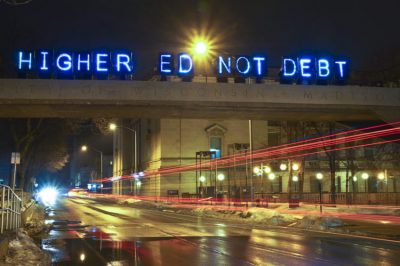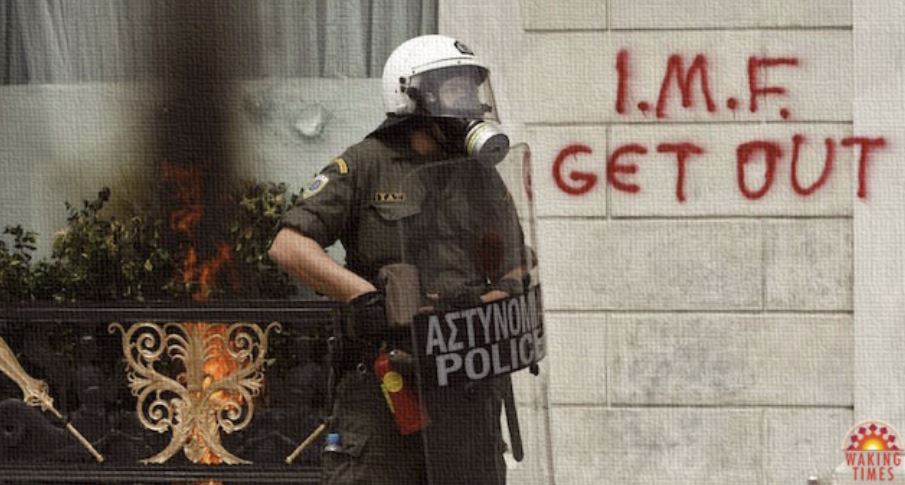Fake News has Become a Weapon of Choice for a Handful of Countries
by Grete Mautner, New Eastern Outlook:
 It goes without saying that recently ‘fake news’ has become one of the most trending search phrases on the net. Moreover, representatives of Collins English Dictionary have gone as far as to name it official Word of the Year for 2017, and there’s a very good reasons for this term to enjoy such popularity. For instance, it was used by American President Donald Trump, who accused leading Western media sources of spreading deceitful reports by describing them as ‘fake news’.
It goes without saying that recently ‘fake news’ has become one of the most trending search phrases on the net. Moreover, representatives of Collins English Dictionary have gone as far as to name it official Word of the Year for 2017, and there’s a very good reasons for this term to enjoy such popularity. For instance, it was used by American President Donald Trump, who accused leading Western media sources of spreading deceitful reports by describing them as ‘fake news’.
The uncontested prevalence of such news could be observed during all the major political campaigns of recent years: presidential election in the US and France, parliamentary elections in Germany, Brexit and Catalan referendums… Perhaps there is no country in this world that escaped fake news as they are being manufactured and distributed via social media on the global scale, as there are whole “troll factories” and even all sorts of government bodies that justify their existence by claiming that they’re engaged in a “fight against disinformation”.
The Guardian experts tasked with analyzing disinformation campaigns in the online media came to a conclusion fake news is not just a Western problem, as it can be found in the media space of pretty much every corner of the world. In Brazil, for example, since early 2016, the popularity of false news reports has exceeded the coverage enjoyed by the mainstream media. This can be explained by the corruption scandal and the subsequent impeachment of President Dilma Rousseff. According to the BBC, out of the five most popular (according to the number of reposts) news reports in Brazil, three were false. In India, the main distributor of false reports is the WhatsApp messenger, as The Guardian adds.
Fake news – an integral attribute of information wars, which, in turn, accompany real wars. One of their most striking manifestations in recent years has been the so-called fight against “Russian propaganda” in Europe, which has recently become an obsession in a number of European countries, reaching the European Parliament.
In the course of the information war that is being waged against Russia for years, Western and especially European media sources suddenly faced a situation when their readers would cease trusting their reports on the situation in Ukraine. This mistrust manifested itself in the so-called Salisbury incident staged by London and Washington as a part of its Russophobic campaign, as no facts were being presented to Western readers to support their anti-Russian arguments, so readers preferred to look the other way.
Therefore, the results of a social survey carried out by the Monmouth University, which showed that at least six out of ten Americans, regardless of their political views, believe that the Western mainstream media intentionally deceives by presenting fake reports can hardly be described as surprising.
In Europe, especially among the so-called new EU member states, the absence of any possibility to challenge the Russian narrative about the presence of unknown foreign-backed actors at the EuroMaidan protests or about the ongoing war crimes Kiev is committing in Donbass, politicians decided to label their attempts to silence truthful reports by branding them as a “fight against Russian propaganda”, restricting access to the information provided by Russia’s media sources and launching various anti-Russian media projects, while spreading disinformation in a bid to distract people’s attention.
As early as 2015, it became known that the EU created a special group to combat “Russian propaganda.” In the UK there is a new governmental agency being created that, according to London’s official rhetorics, will specialize in “countering misinformation and fake news.” According to British Prime Minister Teresa May, this agency will allow London to ensure the preservation of its national security priorities and will allow it to deter British opponents more systematically. According to Evening Standard, this body will be working under the supervision of the Cabinet of the United Kingdom, which has already shown its adherence to fake reports during the Salisbury incident.
Moreover, at the beginning of the year France’s President Emmanuel Macron announced a new legislative initiative to be transformed into a law aimed at countering fake news.
The issue of fake news and propaganda is now being supervised by the EU Parliamentary Commission, which has already demanded Facebook and Twitter to provide them reports on this matter.
Lately it’s become known that a special unit to counter “fake” information was created under the supervision of the European Parliament. The unit is tasked with the goal of preserving the reputation of the European Parliament and responding to false reports, which can be published by both foreign and local media sources. From 2018 to 2020, this team will be receiving 1.1 million euros annually.
However, there’s little doubt that when the heads of Western countries talk about fighting “fake news”, they, first of all, mean strict censorship of the information space. And the more often Western leaders pronounce the phrases “struggle for democracy”, “freedom of speech” and the fight against “fake news”, the more rigid a form of total surveillance we are going to encounter. And we clearly see today that the fight against the alternative narrative in a great many of Western countries starts to take truly Orwellian shapes.



